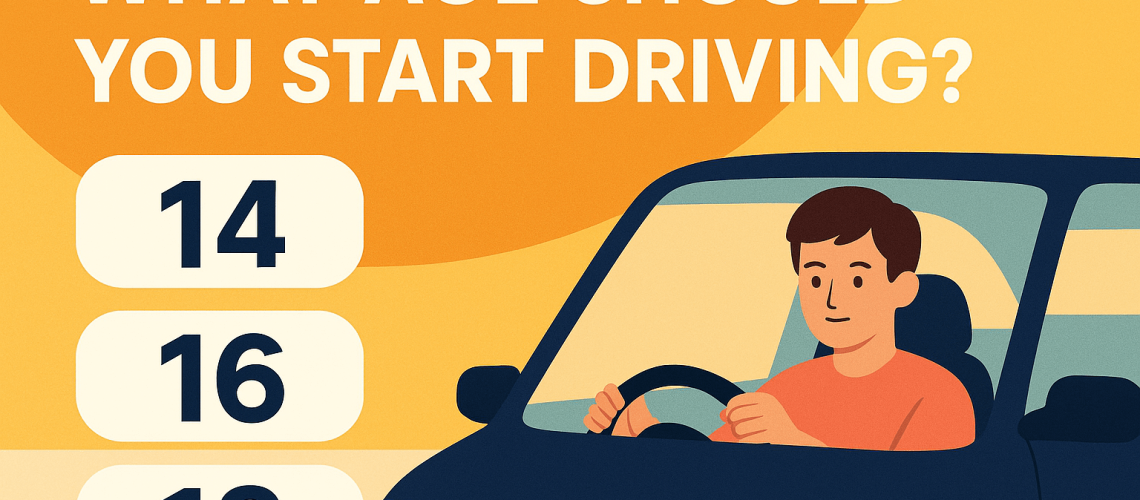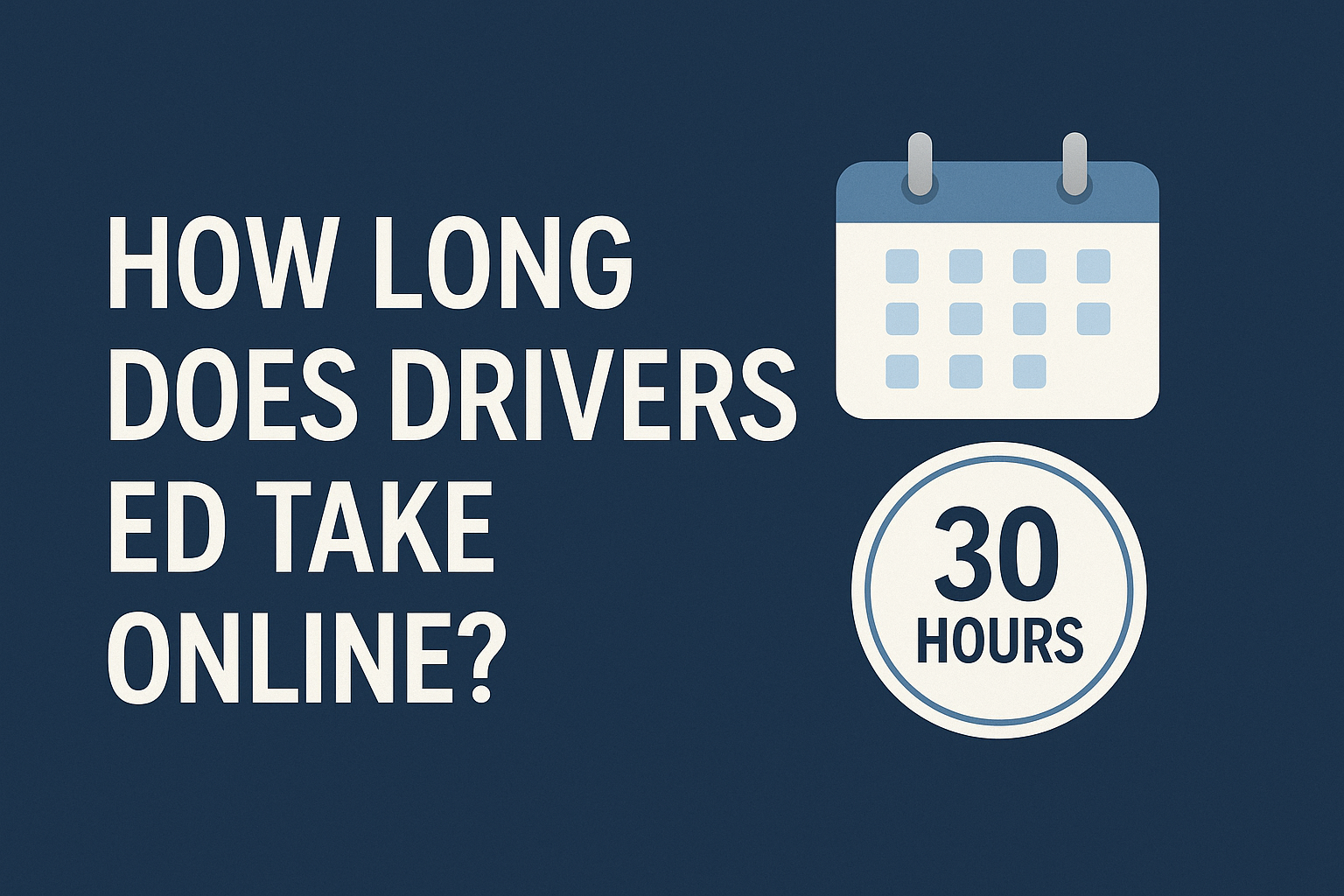Understanding what age you should start driving matters for every family preparing a teen drive journey. The driving age varies widely across the United States, and young drivers often feel excited to learn to drive, build confidence behind the wheel, and gain driving experience early. While the legal driving age sets the minimum age requirements, the right age depends on maturity, responsibility, and readiness for safe driving habits.
Parents and their teens often explore resources such as what is drivers ed or how much is driving school to understand education options before obtaining a learner’s permit. The goal is always to help young drivers develop safe driving practices, learn the fundamentals of practical driving, and prepare for the driving portion of the road test.
Legal Driving Age in the U.S.
The legal driving age in the United States can vary by state, but most states allow teens to begin driving education and start learning to drive with a learner’s permit at age 15 or 16. Many states issue restricted or provisional licenses at 16, although these licenses include driving restrictions such as night driving limits or passenger rules.
The full license usually becomes available at age 18, depending on the state sets requirements. Because age requirements vary by state, teens can start the process earlier or later depending on local rules. Always check your local DMV to understand the minimum age for obtaining a permit, the full license timeline, and the graduated driver licensing system that guides behind the wheel progress.
Understanding what a learner’s permit is differs from knowing how to legally drive. A learner’s permit allows supervised driving while a full license grants full independence. Getting a driver’s license requires meeting strict age requirements, passing a road test, and completing a driver education course if your state mandates one.
Learner’s Permit Versus Driver’s License
Before a teen can begin driving independently, they must first obtain a learner’s permit. A learner’s permit allows supervised driving so teens can start learning to drive in safe environments. Supervised driving helps teens learn driving techniques, driving behavior, and safe driving practices while under the guidance of a trained adult or driving instructor.
To apply for a driver’s license, the minimum number of supervised driving hours usually ranges from 30 to 50 hours. Some states require completion of a drivers ed course or an education course before obtaining the provisional license. This education helps teens learn safe driving habits, develop an understanding of traffic laws, and gain driving confidence.
The graduated driver licensing model was created to help young drivers build skills step by step. Teens learn to drive through structured practice drives, increasing independence only when they demonstrate safe driver maturity. This helps reduce driving accidents, especially during the first year of driving when risk is highest among new driver age groups.
Is There a Right Age to Start Driving?
The right age to start learning to drive is not always the legal age. Readiness matters more than just meeting the minimum age. Starting to drive too early can be stressful for teens who do not yet feel confident behind the wheel. On the other hand, waiting too long can delay valuable learning driving skills that are beneficial for teens before adulthood.
Readiness depends on maturity, ability to manage distractions, and awareness of road risks like peer pressure or phone use. Teens who manage responsibilities well at school and home often adapt to behind the wheel expectations more easily. Those who want to start driving early may feel motivated, while others may prefer to wait until age 18 to build confidence.
Ultimately, the best age to learn varies for each teen. Parents must evaluate whether their teen is old enough to drive responsibly and whether the teen can maintain safe driving habits once they legally drive independently.
What Experts Recommend
Experts from AAA and the National Highway Traffic Safety Administration emphasize readiness over age. The goal is to help young drivers avoid car crashes, gain driving awareness, and learn to drive safely at any age to start driving education.
Research shows that car crashes are highest among the youngest licensed drivers. Graduated driver licensing programs and supervised driving hours help new drivers reduce risk. Parents play a critical role in teaching teens to drive, setting expectations, and modeling safe driving habits throughout the learning period.
Experts also recommend taking driver education or a drivers ed course to help teens strengthen driving skills, understand traffic laws, and prepare for the road test. Resources such as what is defensive driving or driving tips for beginners offer guidance that is beneficial for teens learning how to drive.
Things to Consider Before Your Teen Starts Driving
Before a teen begins driving, families should consider a few important questions. Has the teen completed a driver education program or an education course specifically created to help young drivers? Are they showing interest or avoiding driving altogether? Are they responsible with chores, schoolwork, and commitments?
Teens must be able to handle distractions such as music, phones, or friends during practice drives. They should also understand the importance of safe driving practices and know they cannot drive recklessly or ignore driving conditions that require extra caution.
Parents and their teens should discuss expectations early. Asking whether a teen is ready to begin driving helps create clarity before obtaining a learner’s permit.
Tips for Parents
Helping teens learn to drive begins years before they get behind the wheel. Starting driving conversations early, around ages 13 to 14, prepares teens for the responsibilities of becoming licensed drivers.
Parents can introduce practice drives in empty parking lots before the teen applies for the learner’s permit. Using a logbook helps track progress and the number of supervised driving hours needed before applying for the driving test.
A parent teen driving contract or app can provide accountability and reinforce safe driving habits. Practicing driving skills regularly, instead of rushing through the process, helps teens gain driving confidence and improve their driving behavior over time.
For additional guidance, families can explore resources from how long is defensive driving course, how often can you take defensive driving, or learn more through Alliance Driving School in San Diego.
Can You Start Driving at 14?
In most states, the minimum age for obtaining a learner’s permit is higher than 14. Only a few states allow teens to begin driving education as early as 14, but this is rare. In most cases, teens can start learning to drive at 15 or 16 depending on state rules.
Before assuming you can begin driving at the age of 14, families should check local age requirements to avoid confusion. Many states do not allow teens to legally drive until they obtain a permit at age 15 or later.
What Is the Youngest Age to Get a License in the U.S?
The youngest age to get a license in the United States is typically 16 for a restricted or provisional license. However, this license includes driving restrictions like night driving limits and curfews. To gain a full license, most states require the teen to be age 18.
Some states allow a license at 17 if the teen completes a drivers ed course or meets specific education course requirements. The license at 17 is still not universal and will vary by state.
Is It Better to Wait Until 18 to Start Driving?
Waiting until age 18 to begin driving or start learning to drive may seem appealing for some families. Teens at 18 are often more mature, better at managing distractions, and more prepared for independent travel.
However, experts argue that earlier driving education is beneficial for teens because it allows them to practice supervised driving before adulthood. Studies show that teens who wait until age 18 to get licensed may skip the graduated license protections designed for young drivers.
The ideal age to start learning depends on maturity, readiness, and guidance from parents and their teens. Learning how to drive early, with a strong focus on safe driving habits and driving techniques, helps create a safe driver prepared for a lifetime of responsible driving.





